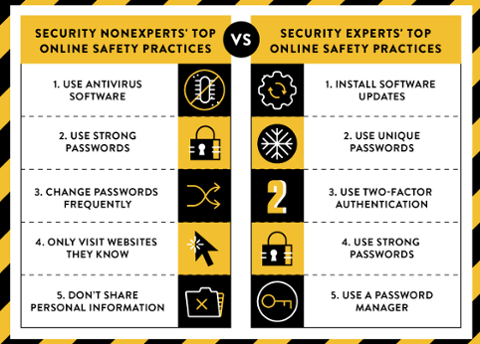- Management, because they need to rally teams of engineers
- Communication, because they need to clearly explain dangers to executives
- Negotiation, because they need to obtain resources for security
- Adaptability, to keep up with how tech is evolving
Getting Into Security? Learn to Think Ahead
In addition to the usual host of technical skills, working in IT security demands a lot of creativity. You not only need to figure out some ingenious ways to patch flaws in code, but also place yourself in the mindset of potential attackers, in order to assess system-wide vulnerabilities. Those who manage to climb to the upper ranks of security management generally boast some combination of the following skills:


